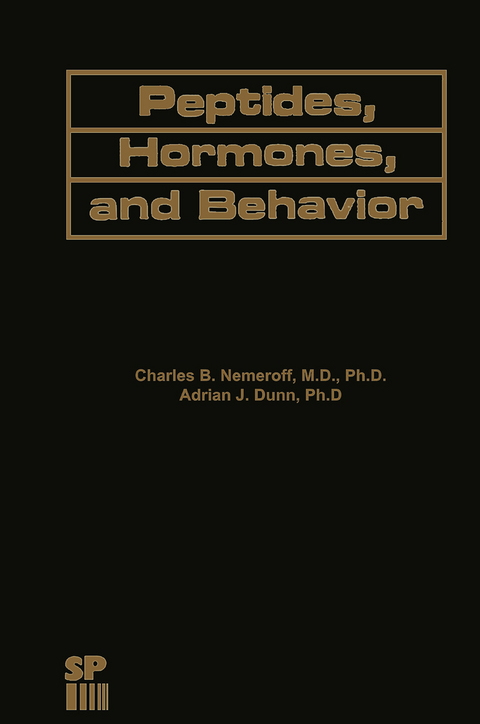
Peptides, Hormones, and Behavior
Springer (Verlag)
978-94-011-7676-7 (ISBN)
1. Design and Perspectives of Peptide Secreting Neurons.- 2. Distribution of Peptides in the Centrai Nervous System.- 3. The Biosynthesis of Peptide Hormones.- 4. The Physiological and Pharmacological Control of Anterior Pituitary Hormone Secretion.- 5. The Neurophysiology of Hypothalamic-Pituitary Regulation and of Hypothalamic Hormones in Brain.- 6. Effects of Hypothalamic Peptides on the Central Nervous System.- 7. Effects of ACTH, ?-Lipotropm, and Related Peptides on the Central Nervous System.- 8. The Role of Endorphins in Neurobiology, Behavior, and Psychiatric Disorders.- 9. Neurohypophysial Hormones—Their Role in Endocrine Function and Behavioral Homeostasis.- 10. Angiotensin and Drinking: A Model for the Study of Peptide Action in the Brain.- 11. Gut Hormones and Feeding Behavior: Intuitions and Experiments.- 12. Sleep Peptides: The Current Status.- 13. Hormones of the Thyroid Axis and behavior.- 14. Glucocorticoids and Mineralocorticoids: Actions on Brain and behavior.- 15. Cerebral Effects of Gonadal Steroid Hormones.- 16. Hormones and Brain Development.- 17. Role of Monoaminergic Neurons in the Age-Related Alterations in Anterior Pituitary Hormone Secretion.- 18. Neuroendocrine Mechanisms in Rodent Reproductive Aging.- 19. Animal Models in Psychoneuroendocrinology.- 20. Behavioral and Neuroendocrine Interactions with Immunogenesis.
| Zusatzinfo | 944 p. |
|---|---|
| Verlagsort | Dordrecht |
| Sprache | englisch |
| Maße | 152 x 229 mm |
| Themenwelt | Medizinische Fachgebiete ► Innere Medizin ► Diabetologie |
| ISBN-10 | 94-011-7676-0 / 9401176760 |
| ISBN-13 | 978-94-011-7676-7 / 9789401176767 |
| Zustand | Neuware |
| Haben Sie eine Frage zum Produkt? |
aus dem Bereich


